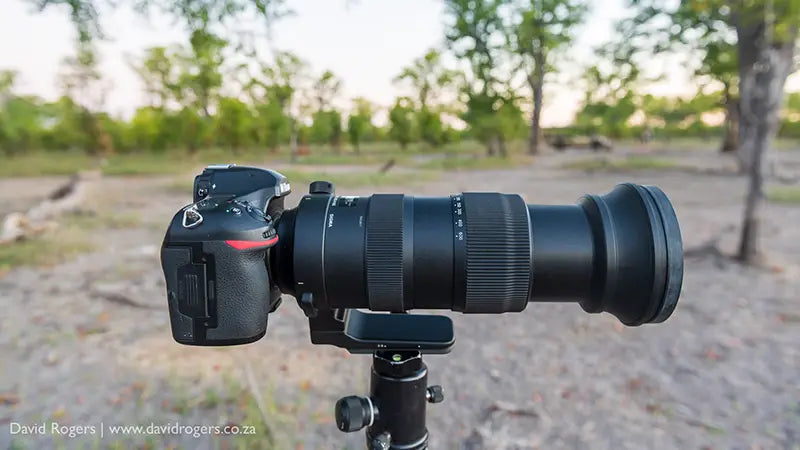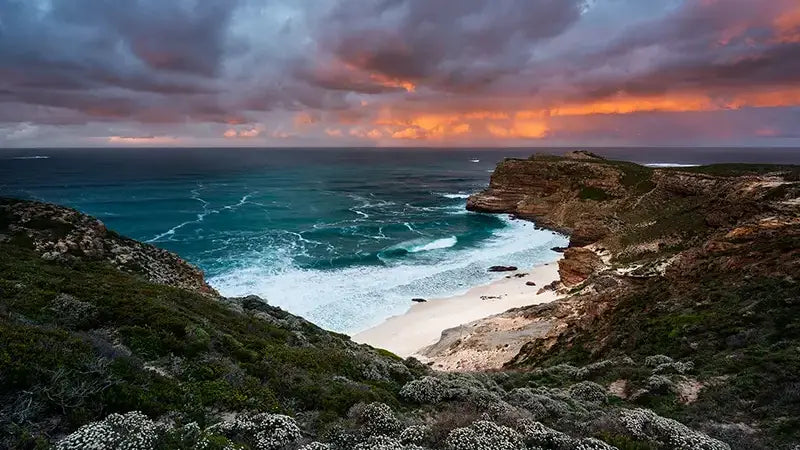Building up your collection of glass uniquely suited to your chosen photographic style? We're here to make the myriad of choices a little clearer and a little less daunting by sharing some of the best lens options for different photographic disciplines. Whether you're a wildlife documentarian, product photographer, or landscape lover, we've got you covered.
Have you found your perfect mirrorless match or DSLR dreamboat? If not, keep swiping right with this blog post where we match-make your photographic lifestyle with the camera that will best suit it.
FOR THE WILDLIFE WANDERERS

What lens you use should be determined by the subject you wish to capture, how that subject behaves, and -- perhaps most importantly -- the story you would like to tell. For the wildlife photographers, we're kicking off our recommendation of the best lens options with a real staple: a 400mm prime. It's basically impossible to go wrong with this focal length (at least that's what we've been told by the pros). This lens is beloved for its relatively light weight, which allows you to shoot on foot for long periods of time. Lenses of longer focal lengths are generally heavier and require greater support to achieve a sharp shot.
If you're looking to incorporate some macro wildlife shots into your portfolio, a great lens would be a 50mm for its sharpness and portability. This is especially well-suited if you are interested in capturing the details of some smaller creatures like insects and lizards. However, if you want to get up close and personal with any bigger beasts, you'll need something with more zoom options. For this, you can't go wrong with a Canon 18-200mm f/3.5-5.6 or a Nikon 70-200mm f/4.
FOR THE FASHION FANATICS AND PORTRAITURE PEOPLE

Fashion and portraiture photography is an especially story-motivated photographic genre. The narrative can be influenced by the clothing, makeup, and, of course, the equipment used to capture the images.
We can't speak on this topic without mentioning the classic 50mm prime as a must-have for all fashion and portraiture photographers. This go-to focal length is ideal for capturing people and easily strikes a balance between the subject and background. They are also easy to handle, making long shoots a breeze from an ergonomic and stabilisation perspective.
Next up, we've got the incredibly versatile 24-70mm. While this lens offers decent compression to separate the subject and the background, its main benefit is its variable focal length. This empowers the photographer with a variety of angles and perspectives they can use to tell a more dynamic story.
Finally, the 70-200mm. This lens is often associated with sports photography, but many fashion photographers like to capture the clothes and model in motion, and that's where this lens comes in handy. Its broad range of focal lengths means it can capture actions up close and far away, while delivering endless opportunities for creative expression with its beautiful bokeh.
FOR THE LANDSCAPE LOVERS

Landscape photography can be a highly specialised discipline, accompanied by very specific lens options. Off the bat, you want to ensure your lens is either a wide (e.g. 24mm) or ultra-wide angle (e.g. 14mm), as this will enable you to capture a broader field of view. The further benefits include a deep depth of field which leads to a consistently sharp focus from foreground to background. For this, we really rate a versatile 16-35mm f/4 or an 11-24mm.
FOR THE PRODUCT PROFESSIONALS

The first thing for still life or product photographers to consider when discovering their best lens options is whether their camera has a full-frame or crop sensor. This factor will determine how the lens' focal length interacts with the sensor. For those of us shooting on DSLRs with cropped sensors, a 60mm prime is a great option.
Another factor to consider is whether you should go with a prime (i.e. fixed focal length) or a zoom (i.e. variable focal length). For products, a prime lens offers unbeatable image sharpness, but unlike with a zoom lens, the shooting opportunities are more limited. Some further considerations would be how wide you prefer to shoot and how close you like to get to your products. Generally, an 85mm f/1.8, 50mm f/1.4, 24-70mm f/2.8 or any 100mm with a wide enough aperture will be excellent for product photography.
SPECIFIC RECOMMENDATIONS FOR DIFFERENT BRANDS
- Wildlife Photography
- Fashion and Portraiture Photography
- Landscape Photography
- Product Photography



